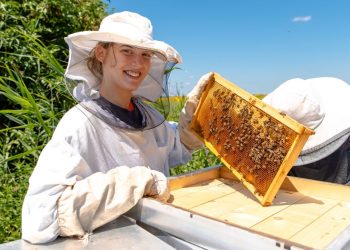Are you or a loved one considering a transition to assisted living? Embarking on this new chapter can be an emotional journey filled with uncertainty and fear. But rest assured, you are not alone. This article will guide you through the process of coping with transitions in assisted living, providing valuable insights and strategies to help you navigate the challenges that may arise.
Understanding the reasons for transitioning is crucial in managing your emotions effectively. Whether it is due to declining health, loss of independence, or simply seeking a supportive community, acknowledging these factors can help you embrace this change with greater clarity and acceptance.
The emotional impact on family relationships is another aspect that needs attention during this transition. As roles shift and dynamics change, it’s important to foster open communication and understanding among family members.
Finding support from both professionals and fellow residents is vital in building a new community within the assisted living facility. Discovering common interests and engaging in activities can help create connections that alleviate feelings of isolation.
While homesickness and nostalgia may arise as you adjust to your new environment, developing coping strategies such as staying connected with loved ones or participating in familiar hobbies can provide comfort during these moments.
Addressing grief and loss is also an essential part of the journey. Recognizing these emotions and seeking support from counselors or support groups can aid in processing these feelings effectively.
Finally, celebrating achievements along the way and finding joy in this new chapter are key components of embracing your newfound independence. Remember, this transition opens doors to opportunities for growth, personal development, and enhanced quality of life.
In conclusion, coping with transitions in assisted living requires understanding your reasons for transitioning, managing fear and uncertainty, navigating changes in family relationships, finding support within your new community, developing coping strategies for homesickness and nostalgia, addressing grief and loss along the way while also celebrating achievements. By following these steps on your emotional journey toward assisted living mastery awaits!
Key Takeaways
– Transitioning to assisted living can be an emotional journey filled with uncertainty and fear.
– Finding support from professionals and fellow residents is vital in building a new community.
– Coping strategies for homesickness and nostalgia include staying connected with loved ones and participating in familiar hobbies.
– Addressing grief and loss is an essential part of the journey and seeking support is important.
Understanding the Reasons for Transitioning to Assisted Living
So, you’re wondering why you or your loved one might be transitioning to assisted living. It’s a valid question, and understanding the reasons behind this decision can help ease any emotional turmoil that may arise.
There are various factors that lead individuals to transition to assisted living, such as declining health, safety concerns, or the need for daily assistance with activities of daily living. These transitions can have a significant emotional impact on individuals and their families. It’s common to feel a mix of emotions like fear, sadness, and even relief during this time.
By acknowledging and addressing these emotions head-on, individuals can better cope with the transition process and adjust more smoothly to their new living arrangements. Assisted living facilities offer a caring environment where residents receive personalized care and support while maintaining their independence as much as possible.
Willamette Oaks: Elevating Corvallis senior living with unparalleled care and community. Discover the warmth of home in every embrace. Remember, this is just one step in the journey towards providing the best care possible for yourself or your loved ones.
Recognizing and Managing Feelings of Fear and Uncertainty
Navigating through changes in a senior care facility can be overwhelming, especially when faced with feelings of fear and uncertainty. Managing anxiety and overcoming uncertainty are essential steps in coping with transitions. It’s completely normal to feel afraid or unsure about the unknown, but there are strategies that can help ease these emotions.
Firstly, it’s important to acknowledge your fears and allow yourself to feel them. Ignoring or suppressing your emotions will only prolong the process of adjustment. Talk openly with family members, friends, or even a therapist who can provide support and guidance.
Next, focus on what you can control. Create a routine that brings comfort and familiarity into your life. Engage in activities that bring joy and relaxation.
Lastly, remember that change is an opportunity for growth. Embrace the new experiences and opportunities that come with transitioning to assisted living. Surround yourself with positive people who understand your journey and can provide encouragement along the way.
Managing anxiety and overcoming uncertainty takes time, but with patience and self-compassion, you can navigate this emotional journey successfully.
Explore how the impact of these changes in a senior care facility can deeply affect your family relationships, challenging you to strengthen bonds and find new ways to support one another.
Balancing expectations becomes crucial as each family member may have different ideas about how to navigate this emotional journey. It is important to recognize that transitions in assisted living can be overwhelming for everyone involved.
Maintaining open communication is key in order to address any concerns or fears that may arise. Regularly checking in with one another and discussing emotions can help create a safe space for sharing thoughts and feelings.
Remember, it’s normal for family dynamics to shift during times of change, but by actively working together, you can adapt and grow stronger as a unit.
Finding Support and Building a New Community
As you adjust to your new surroundings, you’ll discover a supportive community that offers opportunities for connection and growth. Building connections and seeking companionship are essential aspects of coping with transitions in assisted living. Luckily, there are various ways to find support and build a new community within the facility.
Take advantage of group activities or clubs that align with your interests. Participating in these activities not only allows you to meet like-minded individuals but also provides an opportunity for personal growth as you engage in meaningful conversations and share experiences.
Additionally, reaching out to staff members who can connect you with other residents looking for companionship is a great way to forge new friendships. Remember, building a support system takes time, so be patient and open yourself up to the possibilities that lie ahead.
Embracing the Opportunities for Growth and Independence
Open yourself up to the exciting opportunities for personal growth and independence that await you in your new community. Embracing this transformative phase of your life can lead to a renewed sense of purpose and fulfillment.
Here are three ways you can make the most of these opportunities:
- Engage in lifelong learning: Take advantage of the educational programs offered in your assisted living community. Whether it’s attending lectures, joining book clubs, or participating in workshops, expanding your knowledge will not only keep your mind sharp but also provide a platform for meaningful social interactions.
- Pursue hobbies and interests: Use this time to rediscover old passions or explore new ones. Join an art class, start a gardening club, or even learn an instrument. Engaging in activities that bring you joy will help build your independence while fostering a sense of accomplishment.
- Foster connections: Building meaningful relationships with fellow residents is essential for emotional well-being and personal growth. Participate in social events, join support groups, or simply strike up conversations with others who share similar experiences. These connections can provide encouragement, support, and companionship as you navigate through this transition.
By embracing these opportunities for growth and building independence, you’ll find that your journey in assisted living becomes more enriching and empowering than ever before.
Developing Coping Strategies for Homesickness and Nostalgia
To make your time in a new community more enjoyable, it’s important to develop strategies for dealing with homesickness and nostalgia. Coping with loneliness can be challenging, but there are ways to ease the transition.
First, try to maintain connections with loved ones through phone calls or video chats. Sharing your feelings of homesickness with them can provide comfort and support.
Additionally, take advantage of the opportunities to meet new people in your assisted living community. Engaging in social activities and forming friendships can help combat feelings of isolation.
Adjusting expectations is also vital during this emotional journey. Recognize that it’s normal to feel nostalgic for your old home and routine, but also embrace the chance for growth and independence that comes with this transition.
Remember, you have the power to create a fulfilling life in your new community by implementing coping strategies and staying open-minded.
Addressing Grief and Loss in the Transition Process
One way you can navigate the challenging process of transitioning to a new community is by acknowledging and addressing the grief and loss you may experience along the way. Moving to assisted living can bring up feelings of loss for your previous home, independence, or even loved ones who may have passed away.
It’s important to give yourself permission to grieve and understand that it is a normal part of the transition process. The grieving process may involve various emotions such as sadness, anger, or even guilt. It’s crucial to allow yourself time and space to feel these emotions and seek support from professionals or fellow residents who are going through similar experiences.
Emotional healing takes time but actively working towards acceptance and finding new sources of joy can aid in the healing process. Remember that while transitions can be difficult, they also offer opportunities for growth, new relationships, and improved quality of life.
By acknowledging your grief and taking steps towards emotional healing, you are paving the way for a smoother transition into your new assisted living community.
Celebrating Achievements and Finding Joy in the New Chapter
Discover the boundless joy that awaits you as you celebrate your achievements and embark on this new chapter of your life. Transitioning to assisted living can be a challenging process, but it also opens up opportunities for finding purpose and creating connections.
As you settle into your new home, take the time to reflect on all that you’ve accomplished throughout your life. Celebrate the milestones and accomplishments that have shaped who you are today. Embrace this chance to start anew and find fulfillment in activities that bring you happiness and fulfillment.
Whether it’s joining a book club, volunteering in the community, or pursuing a newfound passion, there are endless possibilities for discovering joy in this next phase of life. Remember, each day is an opportunity to make meaningful connections with others who share similar experiences and interests.
Embrace this new chapter with enthusiasm, knowing that great things await you on this journey of self-discovery.
Conclusion
In conclusion, transitioning to assisted living can be a challenging and emotional journey. It is important to recognize and manage feelings of fear and uncertainty, while also seeking support from family, friends, and the new community. Coping strategies for homesickness and nostalgia can help ease the transition process.
Additionally, addressing grief and loss is crucial in finding closure and moving forward. Remember to embrace the opportunities for growth and independence that come with this new chapter of life. Celebrate your achievements and find joy in this next phase. You’re not alone on this journey – there are resources available to guide you every step of the way.















